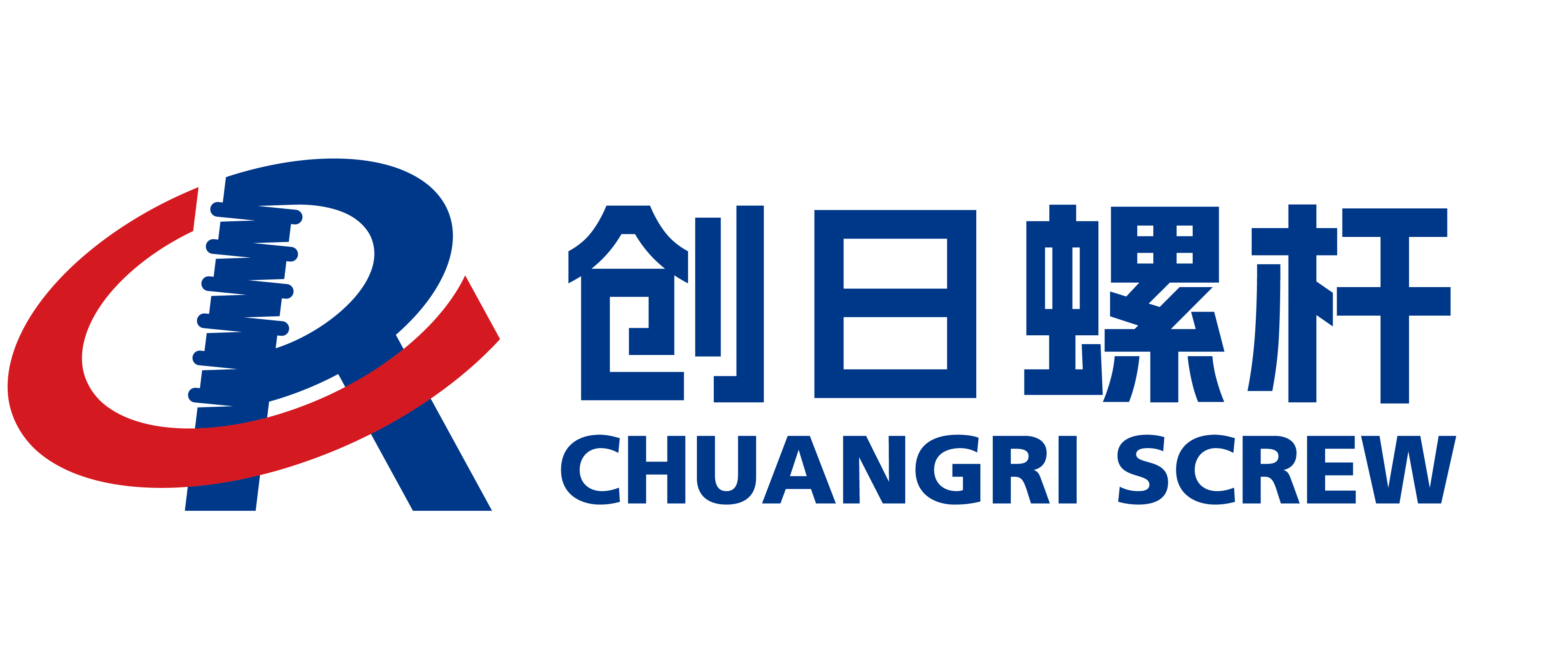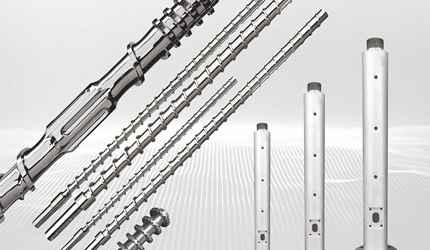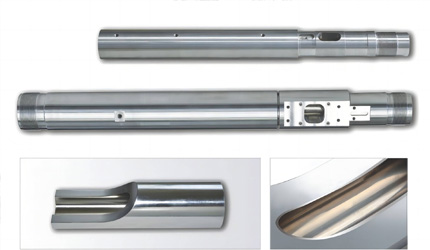Exploring Five Key Screw Types in Injection Moulding Machines
Exploring Five Key Screw Types in Injection Moulding Machines
Injection molding is a crucial process for making plastic parts. It’s used in industries like automotive, medical devices, electronics, and packaging. Choosing the right screw type is a big deal for this process. Different screws can change the quality, output, and lifespan of your production. In this blog post, we look at five main screw types used in injection molding machines. We also talk about their benefits and uses. Each screw type brings special perks that boost efficiency, output, and quality. At CHUANGRI SCREW, we provide custom screw solutions tailored to your manufacturing needs. Our screws ensure great performance and long-lasting durability.
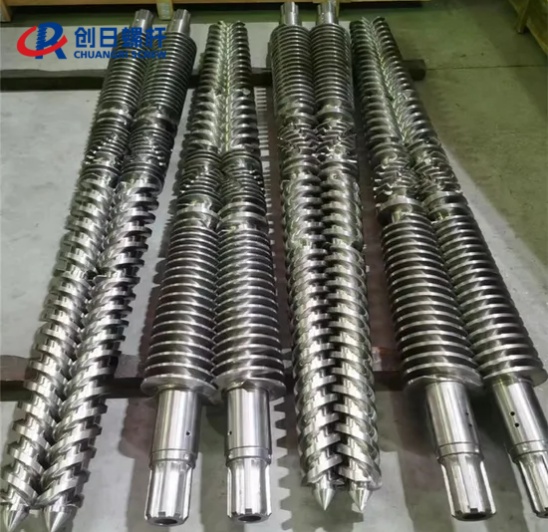
Introduction to Injection Moulding Screws
The Role of Screws in Injection Moulding Machines
In injection molding machines, the screw is a key part. It does three main jobs: moving plastic material, melting it to the right temperature, and pushing it into the mold. This leads to high-quality products. At CHUANGRI SCREW, we focus on precision-crafted screws. They are designed to increase productivity and reduce wear. This ensures solid performance for all kinds of injection molding tasks.
Why Choosing the Right Screw Type Matters
Picking the right screw type can really improve how the injection molding process works. A wrong screw can cause trouble. This includes uneven melt quality, material breakdown, and high repair costs. At CHUANGRI SCREW, we offer a range of screw types tailored to specific needs. This ensures great results and top-quality products. Our custom screw designs help you get better performance. They also make equipment last longer and lower operating costs.
Single Screw for Injection Moulding
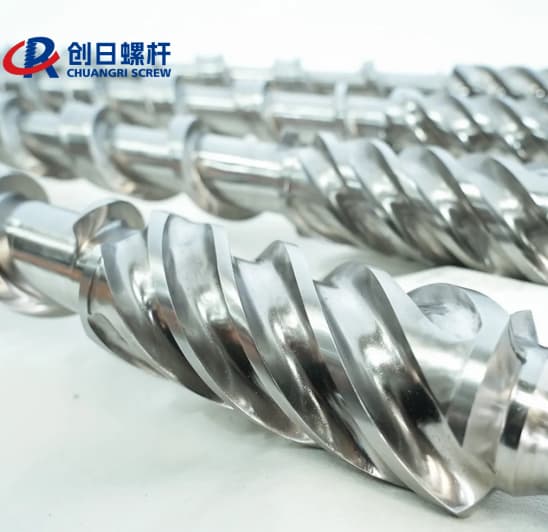
The Single Screw is the most common type used in injection molding. It works with many thermoplastic materials, like PP, PE, and ABS. This makes it handy for general-purpose molding tasks. CHUANGRI SCREW makes high-precision Single Screws for Injection Moulding Machines. They are designed for steady performance and high output with little wear.
Benefits:
Simple, cost-friendly design
Works with lots of materials
Offers reliable performance and durability
Our Single Screws are made from high-quality materials, such as 38CrMoAlA and AISI 4140. These ensure a long service life and consistent performance. They are great for making precise plastic parts with even melt quality.
Bimetallic Screws for Injection Moulding
Bimetallic Screws are built to handle tough conditions. They offer improved durability and resistance to wear. These screws have a core made from standard material. The outer layer is a high-performance alloy that resists abrasion, corrosion, and high temperatures. At CHUANGRI SCREW, we specialize in Bimetallic Screws for Injection Moulding Machines.
Benefits:
Great resistance to wear and corrosion
Longer lifespan than standard screws
Ideal for processing high-performance plastics
Our Bimetallic Screws are derived from new alloy technology and coating. They provide excellent durability in all applications. They are able to engage with tough materials, including engineering plastics. This is cost-effective for maintenance and downtime costs. They are the best to use for applications involving abrasive or high-temperature materials. They ensure efficient and reliable production.
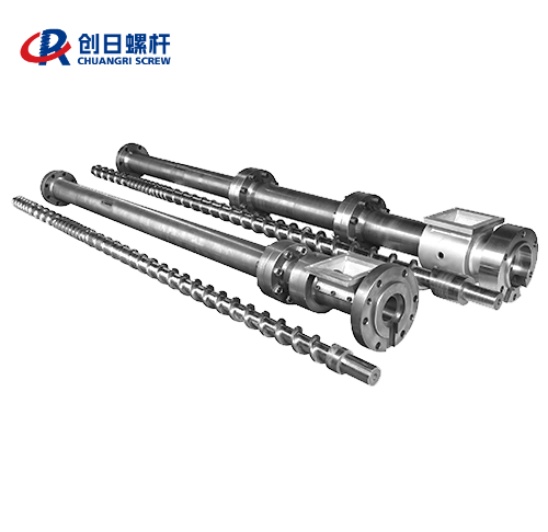
Barrier Screws for Injection Moulding
Barrier Screws are designed to improve how materials melt and mix. They have a barrier zone that separates the feed and metering zones. This helps control material flow. It ensures even melt temperatures and better plasticization. CHUANGRI SCREW offers custom-designed Barrier Screws for Injection Moulding Machines. They improve mixing and reduce contamination in the final product.
Benefits:
Better melt quality and mixing.
Less shear and material breakdown
Great for processing complex and varied materials
Our Barrier Screws are especially helpful for tasks needing high-quality mixing and plasticizing. These include food packaging or medical device manufacturing. The barrier zone prevents material breakdown. This leads to better product consistency and higher-quality outputs. CHUANGRI SCREW’s Barrier Screws are ideal for manufacturers aiming to boost efficiency and reduce defects.
Pin-Type Screws for Injection Moulding
Pin-Type Screws are designed to improve mixing and plasticizing. They have pins on the screw flights. These pins break up the material better, ensuring a more even melt. They also prevent inconsistencies.
Benefits:
High precision and consistency
Perfect for thin-walled or complex parts
Excellent control over melt temperature and material flow
Pin-Type Screws are built for high-precision tasks. They produce even the most delicate components on a consistent basis. Such screws are ideal for industries such as automotive, medical equipment, and electronics. Precision and high-quality outputs are critical in these industries.
Vented Screws for Injection Moulding
Vented Screws provide a means for entrapped air and gases to exit during injection molding. This eliminates finished product defects like air pockets, bubbles, and blisters. The venting pattern also improves the material flow and reduces the likelihood of contamination.
Benefits:
Removes air pockets, blisters, and bubbles
Improves melt quality and consistency
Ideal for moisture-sensitive or volatile materials
Vented Screws are a great choice for manufacturers who want better product quality. They are especially useful in industries where material purity and uniformity matter. By venting air and gases, these screws ensure a more consistent melt and higher-quality products.
FAQ
Q: What is the difference between a single screw and a bimetallic screw in injection molding?
A: Single screws are great for general-purpose injection molding. They can handle various materials. Bimetallic screws offer better wear resistance. They are best for high-performance tasks with abrasive or high-temperature materials.
Q: How do barrier screws improve the injection molding process?
A: Barrier screws improve melting and mixing. They separate the feed and metering zones. This controls material flow and ensures even plasticizing. It leads to better melt quality, less contamination, and better efficiency.
Q: Which plastics are best compatible with pin-type screws?
A: Pin-type screws are most compatible with high-precision and uniformity-demanding applications. Delicate parts, thin-walled products, sensitive components, or complex shapes are ideal for them. PP, PE, and ABS are most compatible, where uniformity and quality are important.
Q: In what way do vented screws reduce injection molding defects?
A: Vented screws permit trapped air and gases to vent through vents. This removes defects like air pockets, blisters, and bubbles. What is achieved is a more uniform melt and a higher-quality end product.
Q: Can design the screw to your requirements for my injection molding machine?
A: Yes, CHUANGRI SCREW is able to design screws to your requirements. Our engineers will work closely with you. They design screws optimized for your materials and processes. This ensures better performance, efficiency, and quality.
